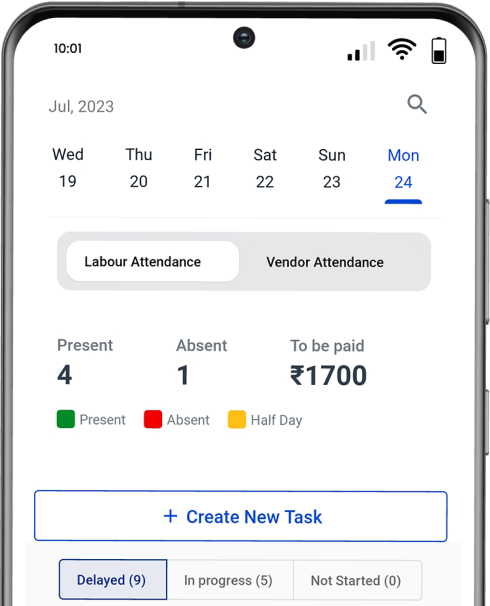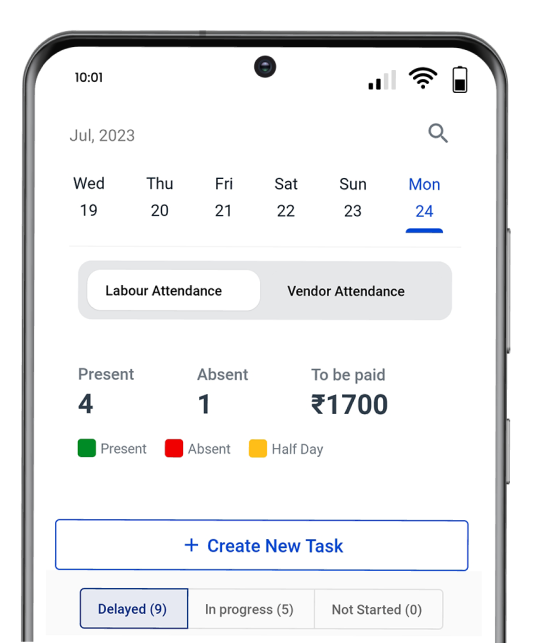How Mobile Apps are Transforming Commercial Construction?
-
Kumar Abhishek Anand
- October 12, 2023
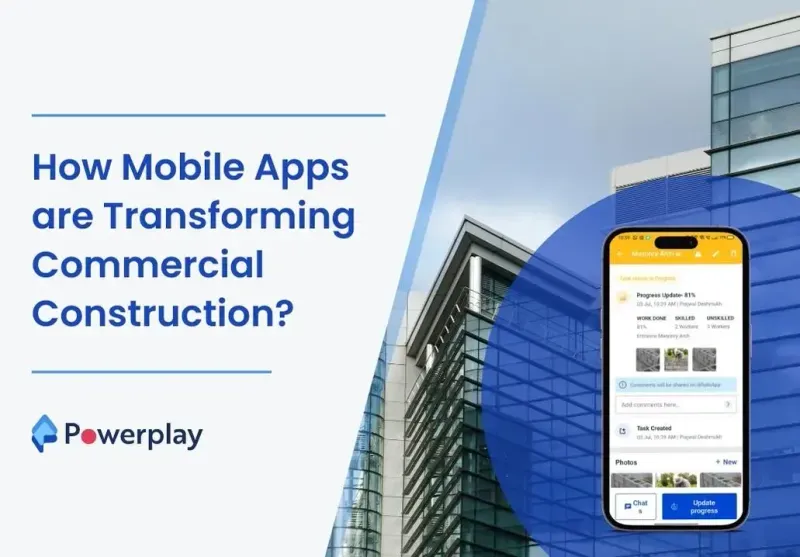
In the fast-paced world of commercial construction, staying ahead of the competition is paramount. With the advent of mobile apps, the industry has witnessed a transformative shift in how projects are managed, executed, and completed. These powerful tools have revolutionized the way construction professionals collaborate, communicate, and streamline their workflows, leading to improved efficiency, enhanced productivity, and greater project success. In this article, we will explore the significant impact mobile apps have had on commercial construction and the key ways they are reshaping the industry landscape.
Table of Contents
ToggleThe Impact of Construction Apps: Latest Statistics
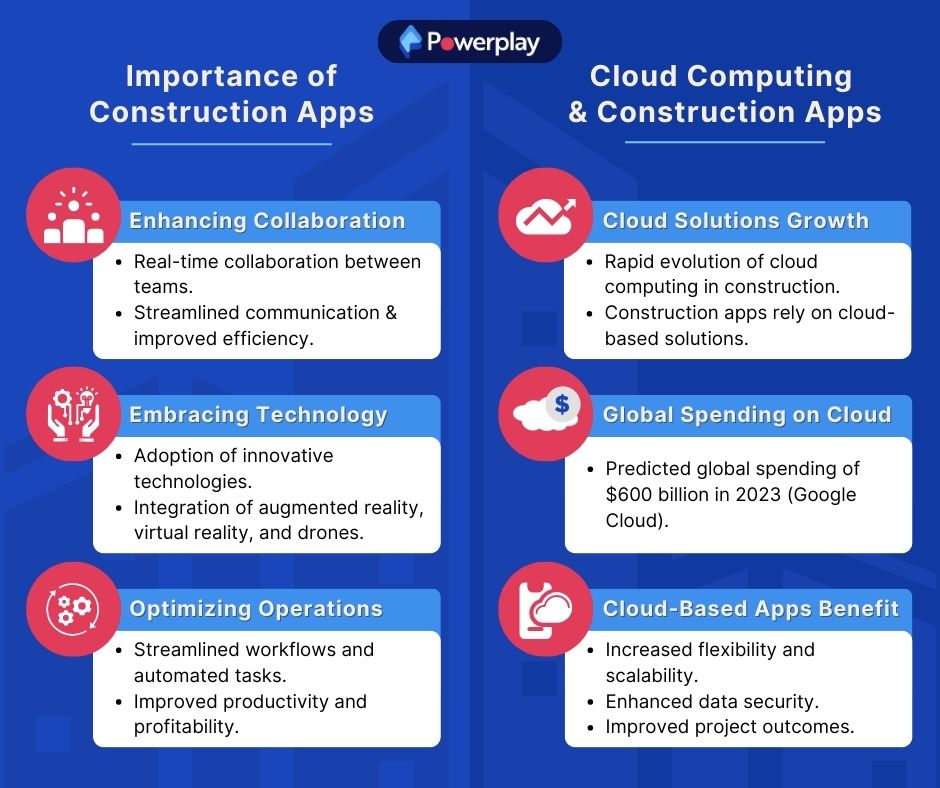
Businesses across industries are recognizing the transformative power of mobile apps in streamlining processes and improving efficiency. In a Forbes article highlighting the biggest business trends in 2023, accelerated digital transformation emerges as a key trend with a profound impact on work and business practices
Construction apps play a crucial role in this digital transformation journey, enabling construction companies to embrace technology, enhance collaboration, and optimize their operations for increased productivity and profitability.
The cloud computing landscape, which construction apps heavily rely on, is also evolving rapidly. According to insights from Google Cloud, global spending on cloud computing is predicted to reach $600 billion in 2023. This highlights the growing importance of cloud-based solutions, including construction apps, in the industry. As more construction companies migrate to the cloud, they benefit from increased flexibility, scalability, and data security, resulting in improved project outcomes.
Streamlining Communication and Collaboration

Effective communication and seamless collaboration are crucial for any construction project’s success. Mobile apps have become invaluable assets in facilitating real-time communication among project stakeholders, including architects, contractors, subcontractors, and clients. With dedicated project management apps, teams can share project updates, exchange critical documents, and collaborate on designs from anywhere, at any time. This enhanced connectivity has minimized delays, improved decision-making processes, and fostered stronger working relationships within the industry.
On-Site Efficiency and Productivity Boost
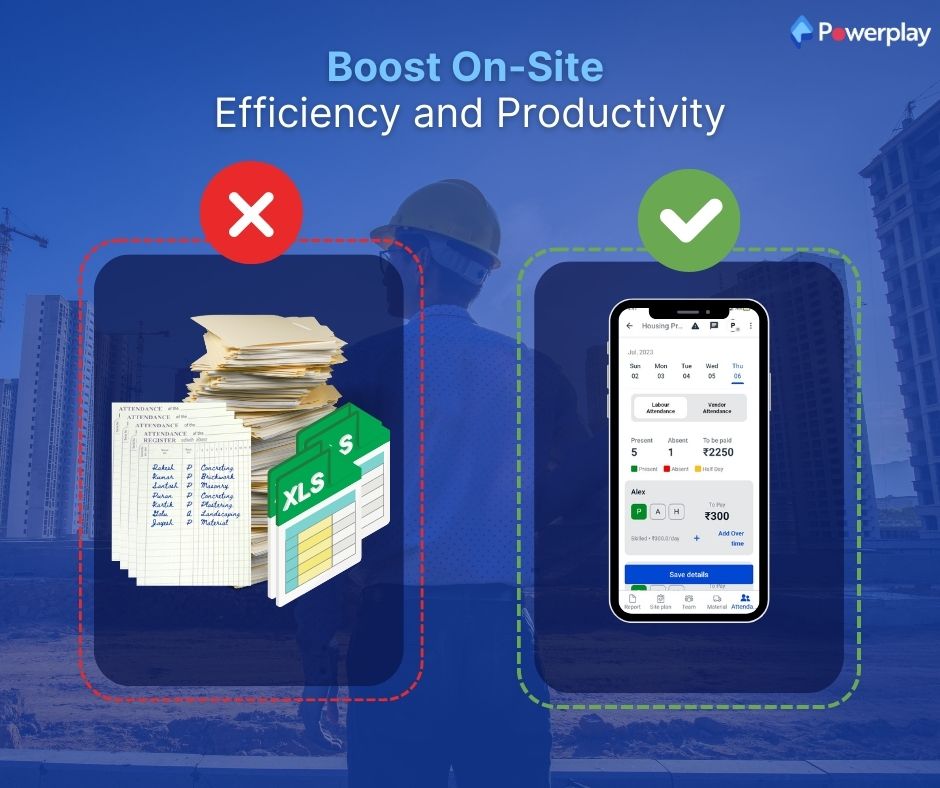
Traditionally, construction professionals relied heavily on physical paperwork, blueprints, and manual processes to manage and track project progress. Mobile apps have revolutionized this aspect by providing convenient, digital alternatives. Construction management apps enable on-site teams to access blueprints, specifications, and construction documents right from their mobile devices, eliminating the need for bulky paper copies. Real-time access to information, coupled with features like task management, progress tracking, and punch-list creation, has significantly enhanced on-site efficiency and productivity.
Enhanced Safety and Risk Management
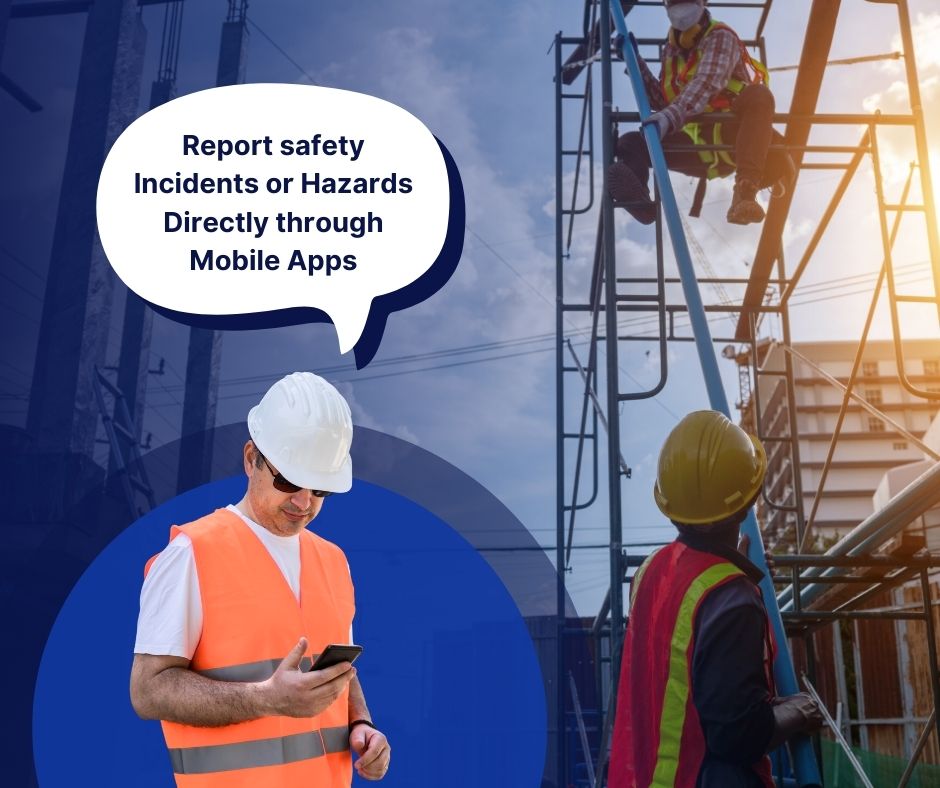
Safety is of paramount importance in the construction industry, and mobile apps have played a pivotal role in promoting a safer work environment. Apps equipped with safety checklists, hazard reporting tools, and incident management systems have empowered construction professionals to promptly identify potential risks and take preventive measures. On-site workers can report safety incidents or hazards directly through mobile apps, ensuring swift communication and action. This proactive approach to safety has not only reduced accidents and injuries but also mitigated legal and financial risks for construction companies.
Real-Time Data and Analytics
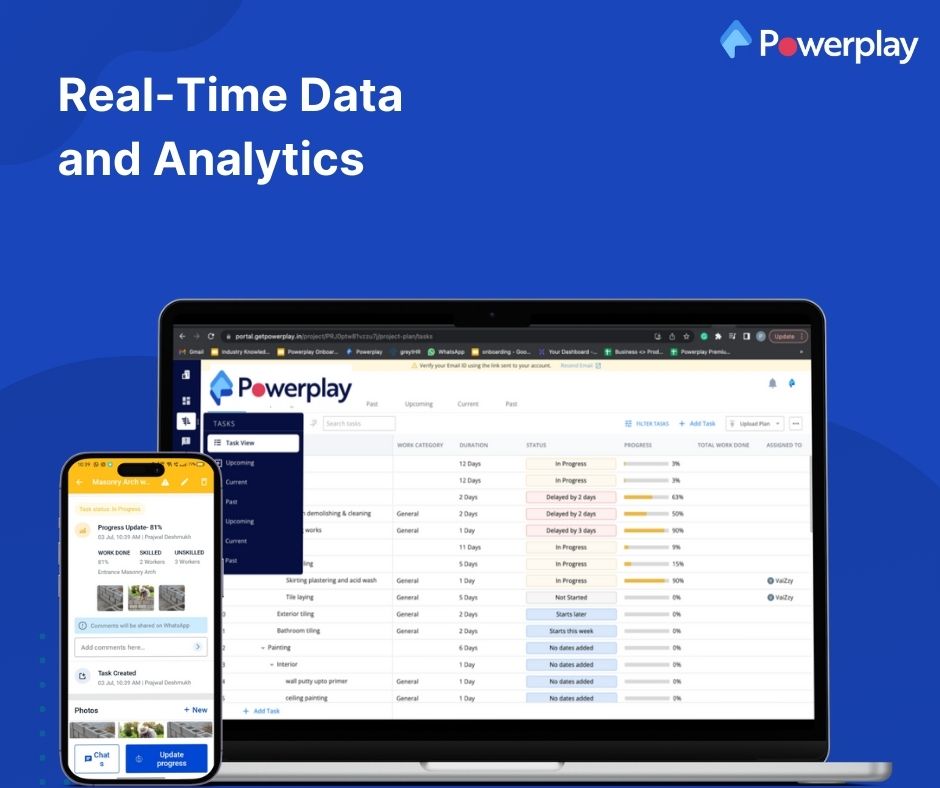
Data-driven decision-making is a cornerstone of successful project management. Mobile apps have become powerful tools for collecting, analyzing, and leveraging project data in real-time. Construction-specific apps enable project managers to track and monitor key performance indicators, such as project timelines, budget utilization, resource allocation, and quality control metrics. By accessing these analytics on their mobile devices, decision-makers can make informed choices promptly, identify bottlenecks, and implement corrective actions, leading to more efficient project execution.
Improved Client Engagement and Satisfaction
In the competitive commercial construction landscape, client satisfaction is the ultimate measure of success. Mobile apps have revolutionized the way clients engage with construction projects, offering a more transparent and interactive experience. Construction apps equipped with 3D visualisation, virtual reality (VR), and augmented reality (AR) capabilities allow clients to visualize the end product before it even exists physically. This fosters better communication, enables early identification of design changes, and ensures that client expectations are aligned with the final deliverables. By providing a higher level of client engagement and satisfaction, mobile apps have become invaluable tools for securing repeat business and fostering long-term client relationships.
The Future of Commercial Construction
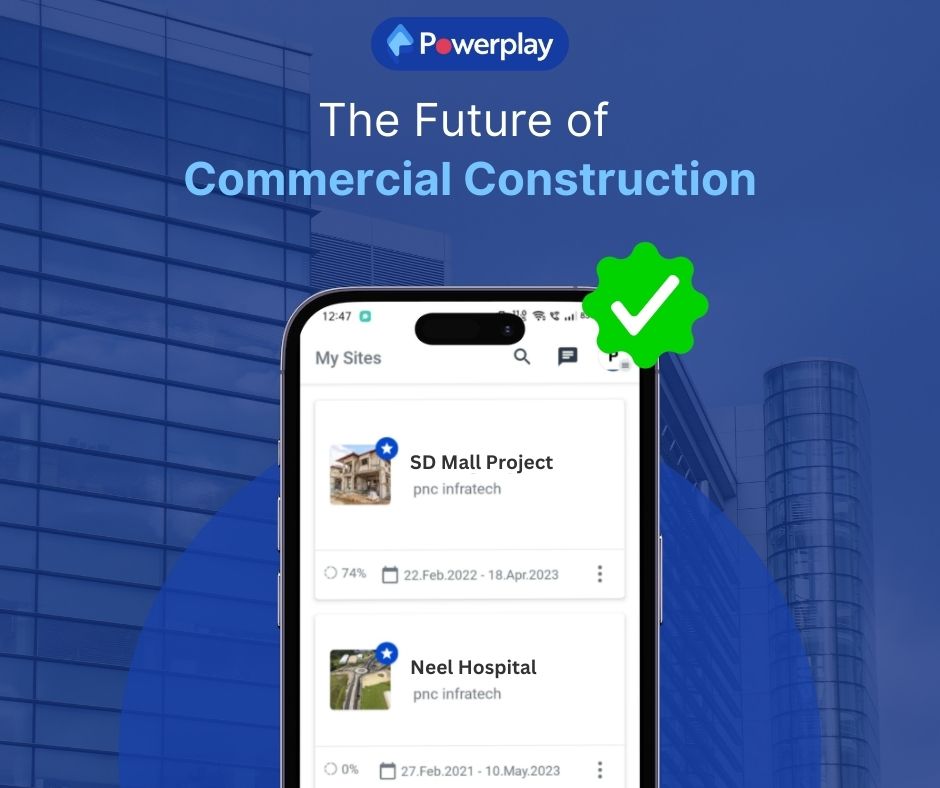
As technology continues to evolve, so does the role of mobile apps in commercial construction. The industry can expect further advancements in areas such as artificial intelligence (AI), machine learning, the Internet of Things (IoT), and automation. AI-powered apps can assist with predictive analytics, resource optimization, and risk assessment, allowing construction professionals to make even more accurate and informed decisions. IoT integration in construction apps can provide real-time monitoring of equipment, materials, and site conditions, optimizing workflows and reducing downtime. These emerging technologies will undoubtedly shape the future of commercial construction, making it more efficient, sustainable, and technologically advanced than ever before.
In conclusion, mobile apps have revolutionized the commercial construction industry, transforming how projects are managed, executed, and delivered. From streamlining communication and collaboration to boosting on-site efficiency, enhancing safety and risk management, and improving client engagement, these powerful tools have become essential for construction professionals. The industry’s future lies in leveraging emerging technologies like AI, machine learning, and IoT to further enhance productivity, optimize resource utilization, and drive sustainable growth. As the digital revolution continues to reshape the commercial construction landscape, staying up-to-date with mobile app innovations is imperative for companies seeking a competitive edge.
Share
Kumar is a digital content professional with more than 2 years of experience in Blog writing, copywriting and scripting. His passion lies in the art of creating convincing content that plays a major role in converting leads for SAAS businesses.






